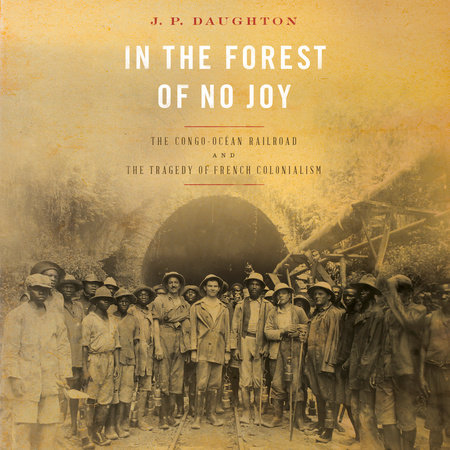

In the Forest of No Joy
By J. P. Daughton
Read by William DeMeritt
By J. P. Daughton
Read by William DeMeritt
Category: African World History | European World History | Audiobooks

-
Jul 20, 2021 | ISBN 9780593501382
603 Minutes
Buy the Audiobook Download:
YOU MAY ALSO LIKE

King Leopold’s Ghost
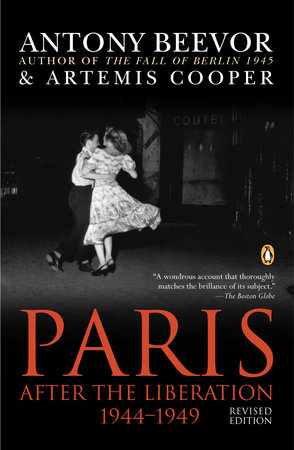
Paris After the Liberation 1944-1949
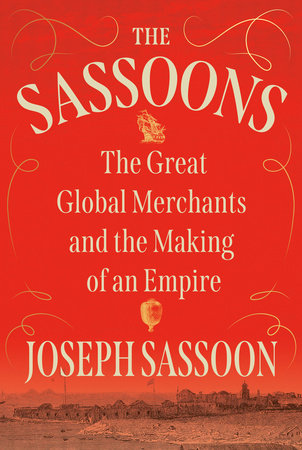
The Sassoons

The City of Falling Angels
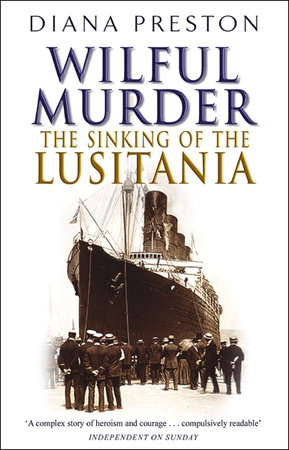
Lusitania

What the Ermine Saw
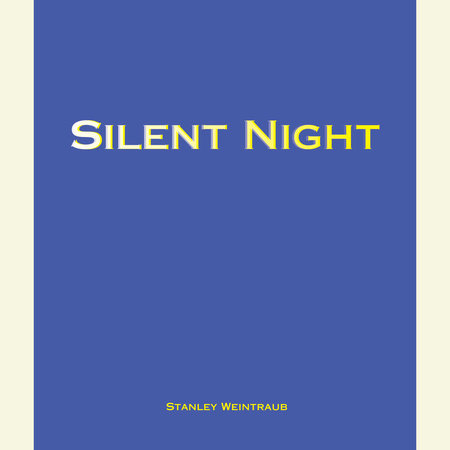
Silent Night

Imagining Canada

Eatonians
Praise
Masterful…. what
makes it so compelling is the divide it exposes between the often admirable
intentions of colonial bureaucrats who did genuinely think they were lifting
Africans out of poverty, and the grim reality that they enabled.—The Economist
[An] unsparing
history…. By highlighting individual stories, Daughton upends the
Eurocentric narrative of the documents he studies, in which ‘white triumph
would always discount African trauma.’—The New Yorker
An unflinching book,
often harrowing in its depiction of the depravity on display in French
Equatorial Africa.—Tunku Varadarajan, Wall Street Journal
Relying on
journalistic accounts from the period and the excellent use of archival
materials, [Daughton’s] book paints a vivid picture of colonialism in central
Africa.—Nicolas van de Walle, Foreign Affairs
If such a shockingly large number of people had been worked to death building a railroad in Europe or the United States, it would be as notorious as the worst deeds of Hitler or Stalin. J.P. Daughton puts this little-known tragedy on the record in a searing, unforgettable, and necessary way.—Adam Hochschild, author of King Leopold’s Ghost: A Story of Greed, Terror, and Heroism in Colonial Africa
Meticulously researched, vividly narrated, and devastatingly compelling, In the Forest of No Joy provides a significant contribution to the mounting evidence that lays bare the self-deceiving lie at the heart of Empire, that of the ‘civilizing mission.’ J.P. Daughton details the horrific abuse carried out by the colonial regime upon the African population during the construction of the Congo-Océan railroad, from forced labor to torture and murder, and finds evidence not just of African suffering, but also African resistance.
—Aminatta Forna, author of The Devil that Danced on the Water
In this tour de force of historical research, J.P. Daughton tells the horrifying story of the Congo-Océan railroad, a massive, ill-conceived construction project (1921-34) whose French overseers doomed some 20,000 African workers to die. This story, revealing as it does France’s imperial hubris and callous disregard of human suffering, should have been told a long time ago. But it has been buried by bureaucrats, overlooked by historians, and made invisible to those who chose not to see. We owe Daughton a great debt for bringing it to light and for masterfully adding a new chapter to the tragic history of Central Africa under European colonial rule.—Edward Berenson, department chair and professor of history, New York University, and author of The Accusation: Blood Libel in an American Town
Sailing with J.P. Daughton into the French empire’s heart of darkness is a visceral, haunting, and memorable experience. In the Forest of No Joy will stand alongside Adam Hochschild’s King Leopold’s Ghost as a chilling testament to the crimes of European ‘civilization.’
—Marcus Rediker, author of The Slave Ship: A Human History
In his compelling study, J.P. Daughton evokes the murderous violence that accompanied the construction in the 1920s of a tortuous railroad in southern French Equatorial Africa, sadly representative of the French imperial project. Daughton presents a chilling analysis of French colonial attitudes toward indigenous peoples, while vividly relating the experiences of tens of thousands of ordinary Africans.—John Merriman, Charles Seymour Professor of History, Yale University
Daughton masterfully
relays…. a compelling narrative of the effects of imperialism, still
apparent in the 21st century…. This outstanding work should satisfy
history enthusiasts of all levels. Daughton’s writing is heartfelt throughout.—Library Journal, starred review
Meticulous and enraging…. Daughton skillfully reads against the grain of these official records to
uncover the harrowing reality faced by native Africans. This is a devastating
record of the horrors of colonialism.—Publishers Weekly
21 Books You’ve Been Meaning to Read
Just for joining you’ll get personalized recommendations on your dashboard daily and features only for members.
Find Out More Join Now Sign In









